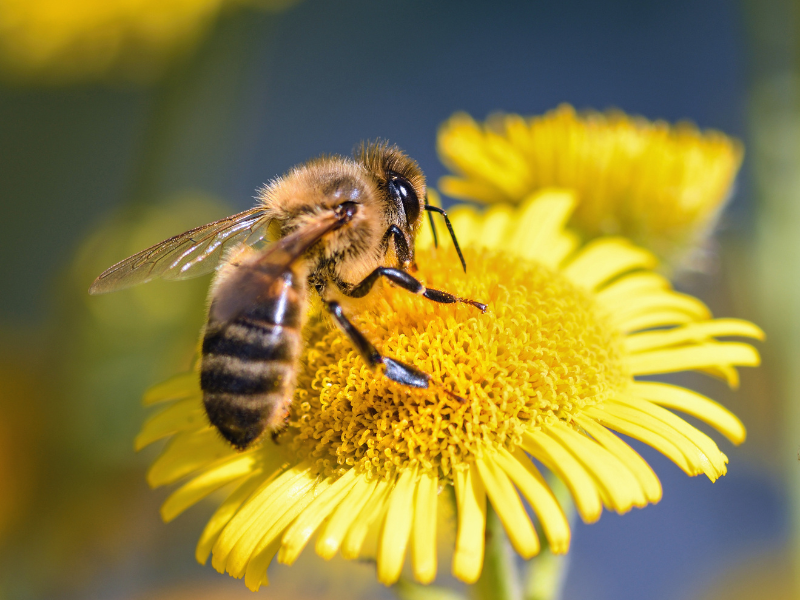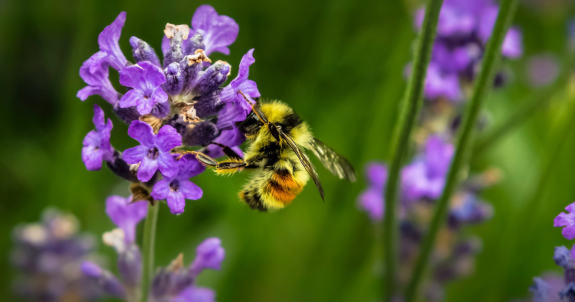Bees are more than just busy pollinators. They’re social, sentient creatures who demonstrate emotions like those seen in mammals—such as optimism, frustration, playfulness, and fear. Research has shown that bees can recognize human faces, process memories and dreams while sleeping, and can even experience PTSD-like symptoms.
Bees also play a crucial role in maintaining the balance of ecosystems by pollinating trees, flowers, and other plants. But tragically, bee populations have been steeply declining, in large part due to human activity.
By visiting flowers in search of nectar and pollen, bees inadvertently carry pollen grains from one plant to another, fertilizing them and ensuring the production of fruits, seeds, and new plants can reproduce and thrive.
Approximately 75% of global food crops, including fruits, vegetables, and nuts, rely on pollinators like bees. Without bees, crops like almonds, apples, berries, and coffee would be severely compromised—crop yield would be lower, and food prices would go up.
Beyond agriculture, bees also help propagate wildflowers, trees, and other plant species, supporting stable and biodiverse ecosystems. Healthy ecosystems are better able to support other wildlife, including birds and insects, and fosters ecological resilience in the face of environmental challenges such as climate change and habitat loss.

4 Ways to Help Bees Thrive
Bees face many threats, including habitat loss, pesticide exposure, climate change, mites, and diseases. Here are a few ways to help bees thrive:
1. Create a safe haven for bees by adding native plants to your garden. Because they evolved alongside local bees, these plants are best at helping bees to survive. Native plants provide pollen and nectar to bees, which they need to feed themselves and their larvae, and also provide a place to nest.
2. Avoid using pesticides—these chemicals harm bees, wreaking havoc on their sensitive systems.
3. Build a shallow garden bath with pebbles for our bee friends to catch a break and take a sip or two after foraging and collecting nectar.
4. Maintain bee habitats. Around 30 percent of bees live in holes inside trees, logs, or hollow plant stems, so don’t be too quick to clear a bee-friendly brush from your yard.
Bees Are Brilliant Beings
Many studies highlight the intelligence and sentience of bees. In a study published by Queen Mary University, researchers found that bumblebees can make trade-off decisions, weighing the benefits of enduring discomfort for a reward of high-sugar solutions versus no pain but lower sugar content.
According to bee expert and lead author of the study, Lars Chittka, bees have a range of impressive cognitive abilities. They have feelings, can plan, and even have good memories. They also possess a degree of self-awareness, which enables them to recognize themselves as separate beings from other bees. These cognitive abilities allow bees to make optimal decisions about collecting nectar and pollen, avoid predators, and communicate with each other.
Honey bees, for example, can perform basic arithmetic, a skill that was previously thought to require a large brain. They also have complex communication systems, like the “waggle dance” that honey bees do to let their hives know about the location and distance of flowers and other resources.
While bee populations are under threat like never before, we can all take simple steps to help these essential pollinators. Help spread the word about the hidden world of bees and the ways we can help them thrive!




